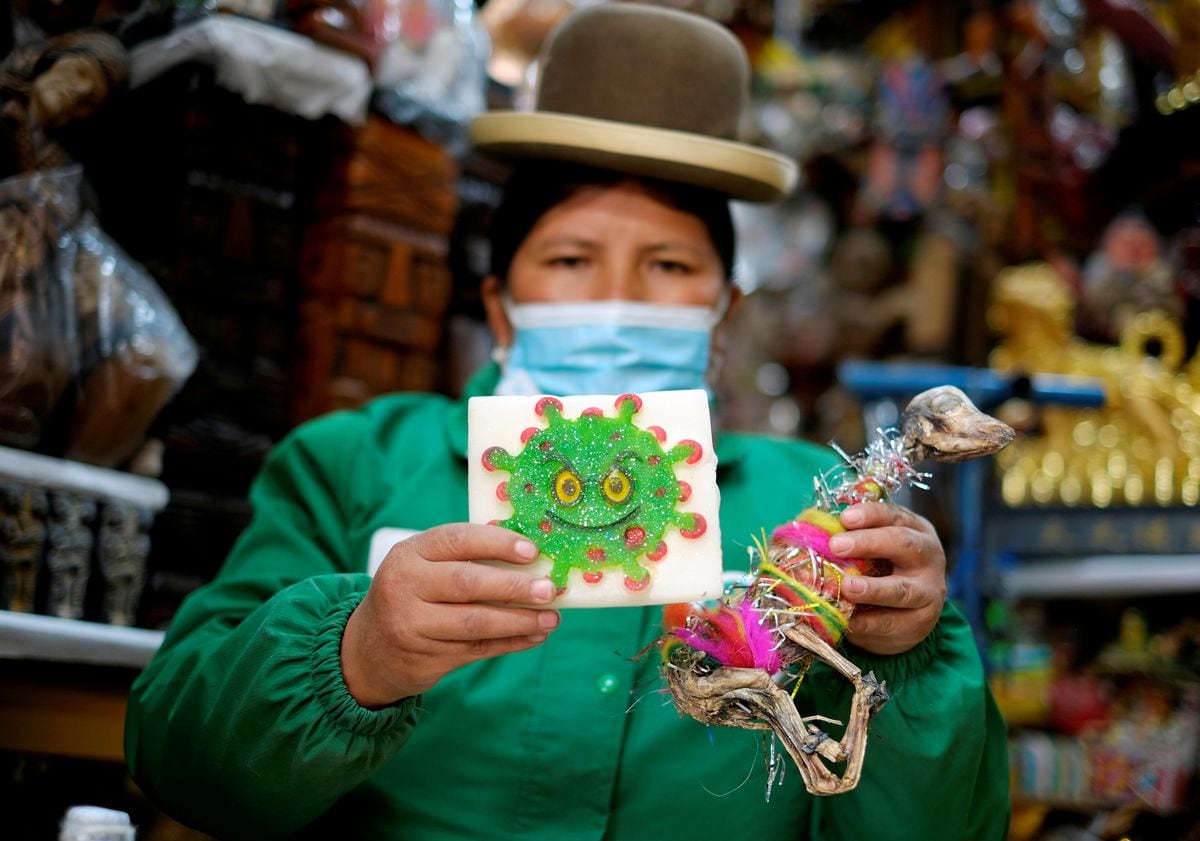South America celebrates the earth.
Like every first of August, within the Andean culture, tribute is paid to the great supplier Pachamama.
Although it is officially celebrated on this date, the Day of Mother Earth or Pachamama - Inca goddess of fertility - lasts for practically the entire month.
The reason for this festival is as noble as it is ancestral: it seeks to make the borders of the South American region invisible to give thanks for the generosity and abundance of the land, and of the products that arise from it: the harvests.
You recognize the good weather, the animals, the food itself.
Due to the roots of these ceremonies, the festivities will not be suspended due to the pandemic, but many of them will take place virtually, as was done in 2020.
More information
Argentina, in a water emergency due to the lowest flow of the Paraná in more than 70 years
Photographic essay in the entrails of the Pachamama
Pachamama against the State
Over the years, this devotion has been nurtured with new symbols and multiple meanings. However, the ritual axis of the celebration, based on a reciprocal offering, is maintained and transmitted between generations. In some Andean communities, for example, the custom of burying a clay pot full of cooked food persists. In this, coca leaves, seeds, fruits, fermented beverages based on corn and peanuts are also added, among other things. Once the pot is buried, an apacheta is placed: a mound of stones on the site where the container rests to form a ceremonial center. Also called “challa” or payment, the tribute to the land is not only executed in August; In some regions, this liturgy is held on the first Friday of each month.Some families do the ritual when a member goes on a trip or when they buy a house or a car, for example.
Pachamama derives from the union of the word "Pacha" —from Quechua: space-time— which means universe, world, place; and "Mama", mother. Flattering the earth has been one of the most popular habits in Inca traditions. The influence of this courtship, in turn, has generated an inevitable syncretism with Western thought. Praises are brewed to the creator of life: "I am the sky, the immensity / I am the earth, mother of eternity / I am Pachamama, I am your truth / I am the song, the wind of freedom", interprets Mercedes Sosa in the song "Wind of the soul." And, with just cause, some compositions demand and highlight the lack of interest in environmental problems. "There are forests that gave oxygen and shade / And now they can't even be seen", is the song "Pachamama" by the
folk rock group
Argentinian Tree.
Religious or not, the political discourse that flows from the cult of the earth becomes more relevant in the context of climate change against the clock that the planet suffers.
It is enough to remember, for example, that Brazil has the worst drought in almost a century.
Days like today serve to awaken interest in environmental policies that are being promoted (or not) by the governments of Latin America.
Subscribe here
to the
EL PAÍS América
newsletter
and receive all the information keys on the region's current affairs
Join EL PAÍS now to follow all the news and read without limits
Subscribe here













